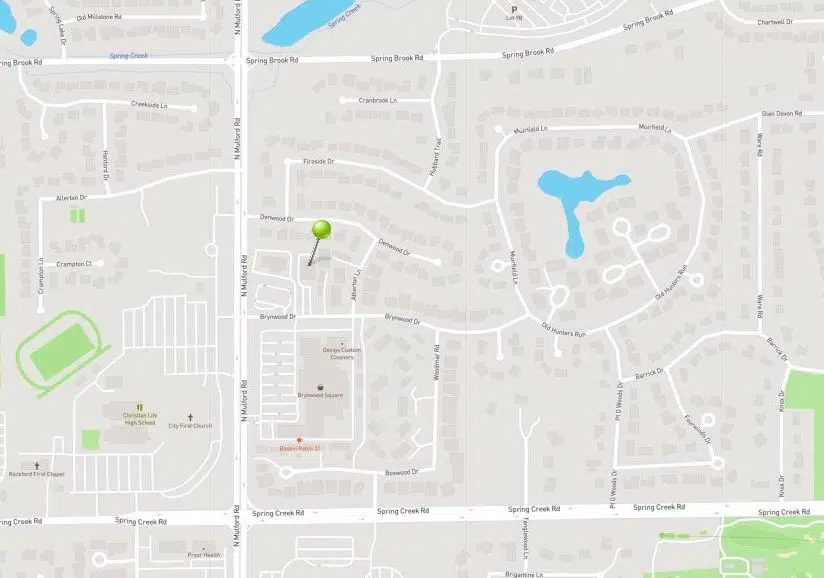Experience You Can Trust
Learn How Chapter 7 Bankruptcy Works
CREDIT CARDS ARE STILL DISCHARGEABLE IN BANKRUPTCY!!
Call Us For A Free Consultation At 815-229-5333.
Prebankruptcy Counseling
Before your bankruptcy case can be filed, you must complete a credit counseling session through one of the agencies approved by the Office of the U.S. Trustee. We will provide you with a list of agencies which have been approved to do this counseling. This counseling session can be done in person, on the telephone or on the Internet, and should take approximately 45 minutes to complete. When you have completed this session, the agency will provide you with a certificate of completion which we must file with the court at the time your bankruptcy petition is filed.
Commencement Of Case
A Chapter 7 bankruptcy is commenced by filing a bankruptcy petition. Supporting bankruptcy schedules which disclose extensive financial information must also be filed.
At the moment your bankruptcy petition is filed, an “automatic stay” is entered which prohibits creditors from taking any further action to collect money from you. If creditors knowingly violate this automatic stay, they can be held in contempt and punished by the bankruptcy court.
The schedules filed with your bankruptcy petition must disclose, among other things, the names and addresses of all of your creditors and a listing of all of your assets. Assets are anything you own or entitled to receive which are of financial value.
When your bankruptcy petition and schedules have been filed, a bankruptcy trustee will be appointed for your case and a notice will be sent to you, to me, and to all of your creditors notifying your creditors that your bankruptcy case has been filed and of the date set for the Meeting of Creditors in Rockford, Illinois.
Exemptions
You are allowed to retain certain property as exempt from the claims of creditors. If an asset is exempt, it cannot be taken by the trustee to assist in paying the claims of your creditors. It is possible that everything you own might be claimed as exempt. One of the most important services I can provide, as your attorney, is assisting you in determining what property can be claimed as exempt, and how the exemption claim should be made.
Learn More About Bankruptcy Exemptions
Meeting Of Creditors
The Meeting of Creditors is normally held about one month after your bankruptcy petition is filed. You need to bring a picture ID and proof of your Social Security number to this meeting. At the Meeting of Creditors, the trustee will question you briefly regarding the financial matters disclosed in the bankruptcy petition and schedules. The bankruptcy trustee’s questions normally do not take more than five minutes and are intended to confirm that the petition and schedules we filed are an accurate and complete statement of your financial situation. The bankruptcy trustee’s job is to determine whether you have any nonexempt assets that might be sold to assist in paying the claims of your creditors. An experienced bankruptcy attorney will be with you at the Meeting of Creditors and can assist in answering the trustee’s questions.
Post-Bankruptcy Counseling
After your bankruptcy case is filed, but before you receive your bankruptcy discharge, you must complete a financial management class through one of the agencies approved by the Office of the U.S. Trustee. This course can also be competed in person, on the telephone or on the internet, and will take approximately two hours. We must file the certificate of completion with the court in order for your bankruptcy discharge to be issued.
Discharge
The goal in an individual Chapter 7 bankruptcy case is to obtain a discharge of your debts. In most cases, a discharge order is entered by the bankruptcy court approximately 60 days after the Meeting of Creditors. When a debt is discharged, the creditor is prohibited by taking any further action to collect the debt in the future. However, a creditor which has a lien or mortgage against your assets may enforce its lien or mortgage. For example, if your car loan is not paid, the lender can usually repossess your car and have it sold to satisfy the debt.
Most debts can be discharged in bankruptcy. However certain special categories of debts which may not be discharged in a Chapter 7 bankruptcy, including:
- Most tax obligations
- Debts incurred by fraud or deception
- Most family support obligations
- Some debts ordered to be paid under a divorce judgment
- Debts caused by willful and malicious acts
- Most student loans
- Liability incurred as a result of drunk driving
It is important that you discuss the nature of each of your debts with us so that we can advise you concerning any potential problems in discharging any of your debts.
Information Concerning Reaffirmation Agreements
Contact Us For A Free Bankruptcy Consultation
We are a debt relief agency. We help people file for bankruptcy relief under the Bankruptcy Code.
Tell Us How We Can Help
Bold labels are required.
Davitt Law Office, PLLC
6072 Brynwood Drive, Suite 206
Rockford, IL 61114
Phone: 815-229-5333
Fax: 815-229-0733

